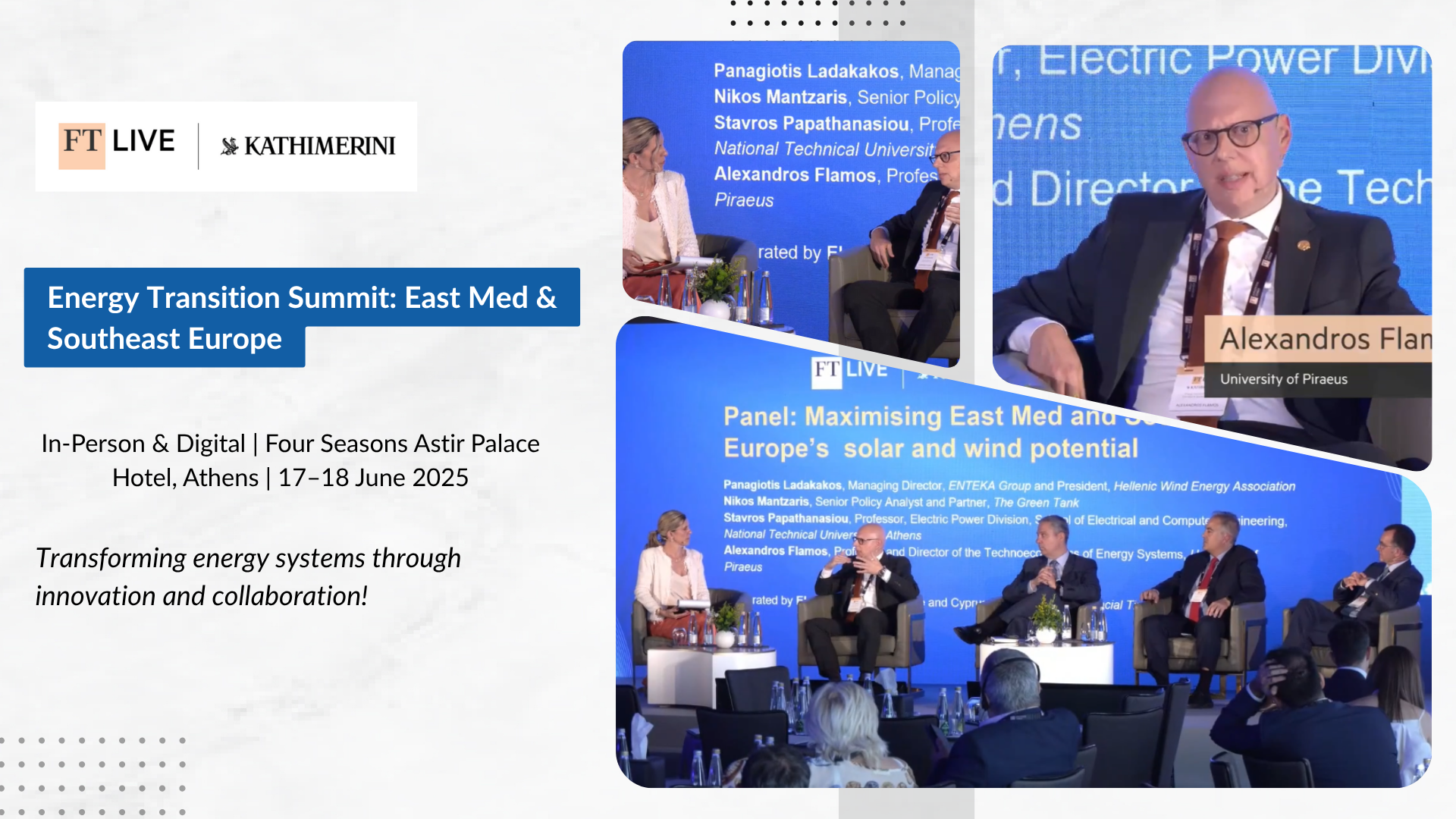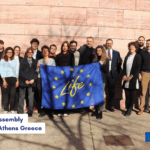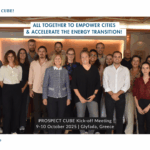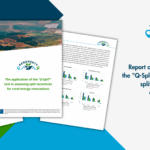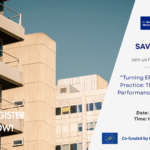On Tuesday, June 17, Professor Dr. Alexandros Flamos, TEESlab’s head, participated in the Energy Transition Summit: East Med & Southeast Europe, an event co-organized by FT Live and Kathimerini, which brought together leading voices from across the region to discuss the path to a clean energy future.
Professor Dr. Alexandros Flamos contributed to a high-level panel discussion titled: “Maximising East Med and Southeast Europe’s Solar and Wind Potential”, alongside experts Panagiotis Ladakakos , Nikos Mantzaris, and Stavros Papathanasiou. The discussion was moderated by Eleni Varvitsioti, and focused on one of the region’s most urgent challenges: how to scale up renewable energy deployment in the face of persistent inefficiencies and system constraints.
During his talk, he outlined 3 key challenges each reflecting a different aspect of the required flexibility in our #electricitysystems, grouped into 3 transformative pillars for enabling energy systems’ flexibility and accelerating the clean #energytransition:
- Hybrid supply and storage systems
A well-balanced wind/solar mix (40-60%) with integrated short-, medium- and long-term storage capacity helps meet #energydemand fluctuations while lowering total system costs.
Hybrid supply and storage projects should address:
- Short-term flexibility (batteries, demand response),
- Medium-term flexibility (multi-day variations driven by weather),
- Seasonal flexibility (e.g. low solar in winter, high summer demand).
2. Demand-side transformation through electrification
Achieving deep integration of renewable energy sources requires large-scale electrification across all sectors, from buildings and ports to industry and transport.
Upfront investment might be high, but the long-term cost-benefit is clear! Studies show that solutions like electric vehicles and heat pumps are already more efficient and cost-effective than their fossil fuel-based counterparts.
3. Grid expansion and regional interconnections
Grid upgrades and stronger cross-border interconnections are vital to smoothing out renewable generation and ensuring flexible electricity supply, especially in East Med and Southeast Europe, unlocking major benefits:
- Enhanced geographical balancing
- Lower system costs – every €1 invested in the grid saves €2 in system costs!
- Improved system reliability.
At TEESlab – Technoeconomics of Energy Systems laboratory, we support our region’s shift through energy system modelling, policy design and technoeconomic analysis – turning complexity into actionable solutions for a clean, resilient energy future.
But to drive real progress, no actor can move alone! This level of transformation further demands a strong signal of full commitment and regulatory stability to reduce the risk of stranded investments and ensure affordable, resilient energy systems!

